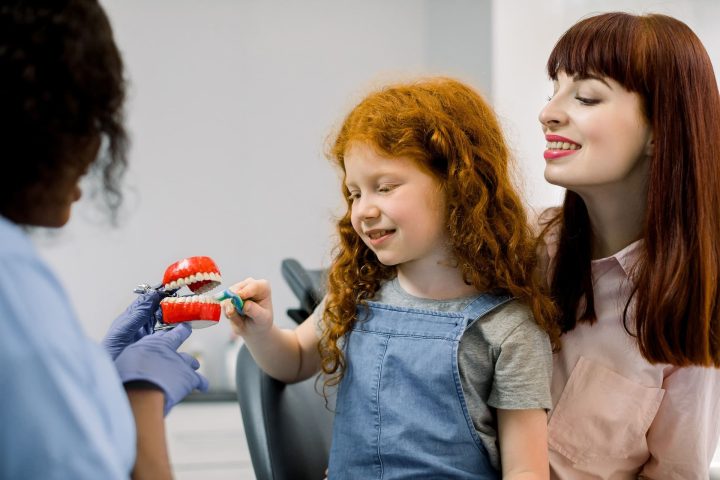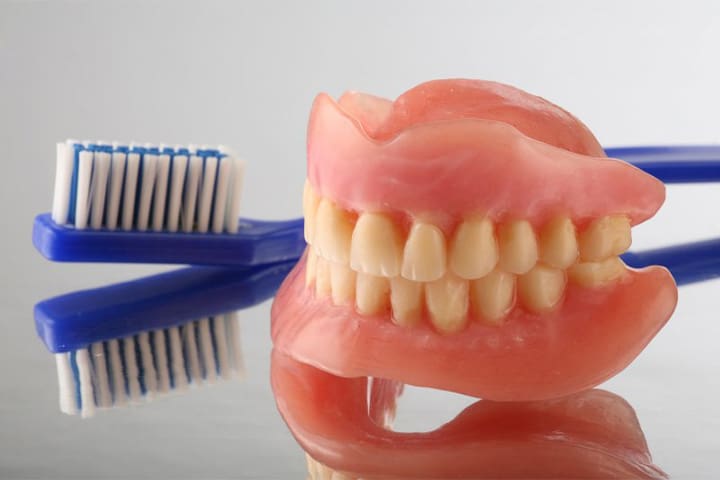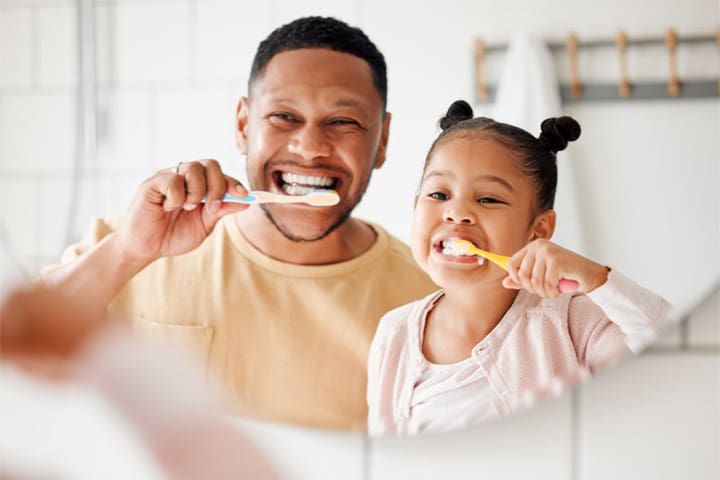Dental anxiety is a common concern among children, and if not properly addressed, it can result in negative experiences and avoidance of essential dental care throughout their lives. At Waban Dental Group, we understand the significance of providing a comfortable, positive, and fear-free environment to ensure your child feels at ease during their dental visits. In this article, we will discuss pediatric dental anxiety, the common causes, and a variety of tips and techniques proven to alleviate your child’s anxiety and help you create a supportive environment conducive to a lifetime of healthy dental habits.
Many factors can contribute to dental anxiety in children—from the fear of pain, needles, or the unknown, to previous unpleasant dental experiences, and even the influence of their parents’ own dental anxiety. As a parent, it is essential to acknowledge and validate your child’s feelings while working on solutions together to overcome these fears and anxiety. Your child’s dental team also plays a crucial role in building a trusting and reassuring relationship that helps your little one feel safe and cared for during their dental visits.
We believe that a strong partnership between parents and dental professionals is vital in providing effective support to children experiencing dental anxiety. By employing proven techniques, such as clear communication, desensitization, and distraction, and creating a comforting environment at home and during dental visits, you can help your child build confidence and gradually dispel their fears.
A comprehensive understanding of pediatric dental anxiety is essential to ensure the best possible care and support for children dealing with this prevalent issue. In the sections that follow, we will discuss in detail the common causes of dental anxiety in children, as well as effective tips and techniques that both parents and dental professionals can utilize to reduce anxiety levels and contribute to positive dental experiences for your child throughout their lives. By combining practical ideas, empathy, and a patient-centered approach, we can create a strong foundation that will enable your child to enjoy the benefits of a lifetime of healthy dental habits.
Keep reading to learn more about pediatric dental anxiety and how you can support your child in overcoming their worries to maintain excellent oral health and a beautiful smile.
Common Causes of Pediatric Dental Anxiety
1. Fear of Pain or Discomfort
One of the most common sources of dental anxiety in children is the fear of experiencing pain or discomfort during dental procedures. This apprehension may stem from hearing stories about painful dental experiences, either from peers or family members, or from having personally encountered a challenging procedure in the past.
2. Fear of the Unknown
Children are often fearful of unfamiliar situations or environments, including dental offices and new procedures. The sounds, smells, and sights of a dental clinic can be overwhelming for a young child, and the lack of control or understanding of what’s happening can contribute to their sense of anxiety.
3. Anxiety Due to Parental Influence
Parents’ own feelings and attitudes about dental care can have a significant impact on their children’s emotions. If a parent exhibits anxiety or negativity about dental visits, their child may become anxious too, even if they have not had any negative experiences themselves.
4. Previous Negative Dental Experiences
A negative dental experience can leave a lasting impact on a child’s perception of dental care. These distressing memories may include painful procedures, uncomfortable situations, or even insensitive dental staff, adding to a child’s reluctance for future visits.
Tips and Techniques for Parents
1. Be a Positive Dental Role Model
One of the best ways to help your child overcome dental anxiety is to be a positive role model for them. Exhibit a calm and positive attitude when discussing your own dental experiences and encourage regular dental check-ups and hygiene habits as essential aspects of maintaining overall health.
2. Encourage Open Communication
Communicate openly with your child about their fears and concerns regarding dental visits. Help them understand that it’s normal to feel anxious, but also reassure them that their dental team will take care of them and do everything possible to make their visits comfortable.
3. Familiarize Them with the Dental Environment
To alleviate the fear of the unknown, consider scheduling a tour of the dental clinic before your child’s first appointment. This will allow them to meet the dental staff, become familiar with the environment, and learn about the various tools and procedures used.
4. Practice Relaxation Techniques
Teaching your child relaxation techniques, such as deep breathing exercises or positive visualization, can help them cope with anxiety both inside and outside the dental clinic. Practice these techniques together, making it a fun and engaging experience for your child.
Tips and Techniques for Dental Professionals
1. Create a Child-Friendly Environment
Designing a child-friendly dental office with colorful decorations, engaging toys, and kid-friendly furniture can help make the clinic feel more welcoming and less intimidating to young patients.
2. Communicate Clearly and Gently
Clear and gentle communication is essential when dealing with young patients. Take the time to explain dental procedures in age-appropriate language, ensuring your child understands what to expect. It is essential to be patient and maintain a comforting tone of voice throughout the appointment.
3. Desensitization Techniques
Gradually introducing children to dental instruments and procedures through desensitization techniques can help alleviate their fears by making the experience less overwhelming. This allows children to become familiar with dental instruments and gradually adapt to the sensations associated with their use.
4. Utilize Behavioral and Distraction Techniques
When necessary, consider employing behavioral techniques such as the “tell-show-do” method, where the dentist first explains the procedure to the child, then shows them the tools involved, and finally performs the procedure. Distraction techniques, like playing soothing music or engaging your young patient in conversation, can also help ease anxiety during dental appointments.
Conclusion
Dealing with pediatric dental anxiety requires a comprehensive approach that encompasses the efforts of both parents and dental professionals. With practical tips, techniques, and a compassionate approach, children can gradually overcome their dental anxiety and develop healthy habits that will contribute to positive dental experiences throughout their lives. At Waban Dental Group, we prioritize providing a comfortable, supportive environment that fosters trust and reassurance for your child. By collaborating together, we can help your child enjoy the many benefits of a lifetime of excellent oral health and bright, confident smiles.
Looking for a trusted pediatric dentist for your child’s dental care? Look no further than the Waban Dental Group. Our experienced team is dedicated to providing exceptional dental care for children of all ages. Contact us today to schedule your child’s appointment and give them the foundation for a lifetime of healthy teeth and gums.









